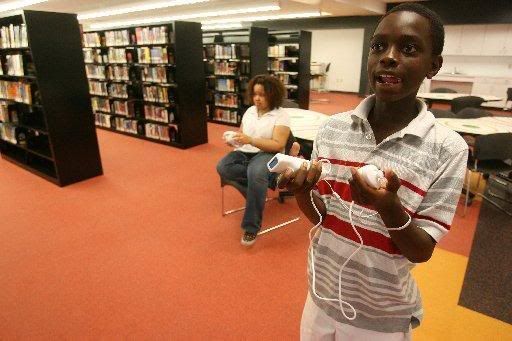This post has not been edited by the GamesBeat staff. Opinions by GamesBeat community writers do not necessarily reflect those of the staff.
Editor's note: The used-games debate is a hot topic this week, and Rachel interestingly takes publishers' primary argument — that used games "cheat" developers — to its logical conclusion. I'll just say that I'm pleased the secondhand market bought one of the greatest console games into her home, and that sort of increased participation in the hobby can only mean good things for the industry in the long term. -Rob

A few weeks ago, I was in my local Barnes and Noble agonizing over a purchase. On my way out –already committed to spending quite a bit of money — I spotted a cookbook. Like most of these, it was expensive. Leafing through the recipes, I couldn’t make up my mind, and after several minutes I put it back. Later, I decided that I would go back and buy the book after my next paycheck.
The next day, I went to my local library. To my delight, the cookbook was front and center in the new arrivals section. Grinning like an idiot, I practically hugged the volume as I removed it. I was immensely proud of myself — just think of all the money I saved!
I did not, even for a moment, feel guilty.
Then one night, I put the cookbook down next to my used copy of Demon’s Souls. I bought the action-role-player from an independent game store at a price significantly below GameStop’s used offering.
I don’t buy secondhand often. I can truthfully say that the last used game I bought before Demon's Souls was from the now departed chain Babbages. It’s been that long. Seeing the two items side-by-side, I suddenly wondered if I should feel guilty for not supporting the book’s author with a new purchase.
When it comes to purchases, I have a massive guilt complex. I can honestly say that I have never downloaded music illegally or pirated a game. I would feel sick every time I used it. That’s why I don’t buy games used — it feels like I’m cheating the developers.
But if I feel guilty about all of that, why do I routinely and guiltlessly read books for free? Not only do I read library books on a regular basis, but I also patronize used-book stores. What is the difference between books and games? Both represent copyrighted material and the hard work of many individuals. Both can represent an intensely personal vision or idea.

Most obviously, the difference is in cultural attitudes. Books are a resource that everyone should be able to access unhindered by socioeconomic status or location. Even in a sluggish economy, I can’t imagine a publishing company trying to guilt people into buying new books rather than borrowing them. Such a statement would sound out of touch and insensitive.
I am aware that big differences exist between book and a game publishing. Games, similar to movies, have high-development costs that at the very least need to be recouped. Also, I can’t pretend for a moment that I have an intimate understanding of the numbers behind the games or books.
Still, I feel uneasy when a company tries to guilt or force me into only buying their goods new. If games are art, which I believe they are, then isn’t my legal purchase of a used game also in support of the industry? Books are art, and therefore, culturally important; so dissemination is more important than the financial bottom line. The message seems to be that developers merely create games in order to make money — any cultural value is secondary.
Maybe I’m a hopeless romantic; I want to believe that games are more than just a commodity. Lately, that’s become more difficult.
